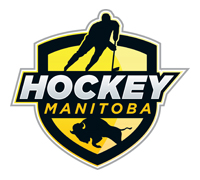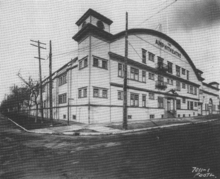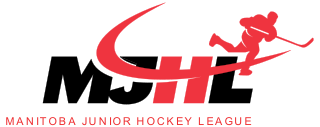
The Manitoba Junior Hockey League (MJHL) is a Junior 'A' ice hockey league operating in the Canadian province of Manitoba and one of nine member leagues of the Canadian Junior Hockey League (CJHL).

Earl Phillip Dawson was a Canadian ice hockey administrator, politician and civil servant. He rose to prominence in Canadian hockey when he served as president of the Manitoba Amateur Hockey Association from 1958 to 1963. He established a council to reverse the decline of hockey in rural Manitoba and saw the association continually increase its registrations by spending more per player to develop minor ice hockey than other provinces in Canada. Dawson became chairman of the Canadian Amateur Hockey Association (CAHA) rules committee and organized the first nationwide clinic for referee instructors to standardize the interpretation of hockey rules. Dawson became vice-president of the CAHA in 1966 then served as its president from 1969 to 1971. The International Ice Hockey Federation had approved a limited use of professionals at the 1970 Ice Hockey World Championships, but later reversed the decision when the International Olympic Committee objected. Dawson and the CAHA perceived the situation to be a double standard since the Europeans were believed to be state-sponsored professionals labelled as amateurs, and withdrew the Canada men's national ice hockey team from international competitions until it was allowed to use its best players.
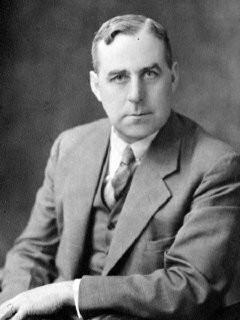
William Raymond "Toby" Sexsmith was a Canadian politician and ice hockey administrator. He was elected three times as a Progressive Conservative Party member of the Legislative Assembly of Manitoba representing the Portage la Prairie riding from 1933 to 1943. He served as president of the Manitoba Amateur Hockey Association from 1921 to 1923, and sat on the association's executive committee for 25 years. He served as president of the Canadian Amateur Hockey Association (CAHA) from 1922 to 1924, and set a precedent that future CAHA presidents would also be given two-year terms.

Claude Copeland Robinson was a Canadian ice hockey and sports executive. After winning an intermediate-level championship as captain of the Winnipeg Victorias in 1905, he served as secretary-treasurer and as vice-president of the Victorias. He coached the Victorias to a Manitoba Hockey League championship in 1909, and felt that his team could have competed for the newly-established Allan Cup, despite that challenges from senior ice hockey teams were accepted only from Eastern Canada at the time. The Victorias won the Allan Cup by default in 1911, when the Toronto St. Michael's Majors refused to play, then successfully defended four challenges for the trophy.

James Archibald Dunn was a Canadian sports executive involved in ice hockey, baseball, fastpitch softball, athletics, football and curling. He was president of the Canadian Amateur Hockey Association (CAHA) from 1955 to 1957, after he served five years as a vice-president. He assumed control of the CAHA when it had lost the confidence of the people to produce a Canada men's national team which would win the Ice Hockey World Championships, and recommended forming a national all-star team based on the nucleus of the reigning Allan Cup champion. He wanted to create more goodwill towards Canada in international hockey, accompanied the Kenora Thistles on an exhibition tour of Japan, then arranged for the Japan men's national team to tour Canada. In junior ice hockey, he was opposed to the mass transfers of players to the stronger teams sponsored by the National Hockey League, and supported weaker provincial champions to have additional players during the Memorial Cup playoffs. After his presidency, he represented the CAHA as a member of the Hockey Hall of Fame selection committee for 15 years.

Allan Wilfrid Pickard was a Canadian ice hockey administrator, who served as president of the Canadian Amateur Hockey Association (CAHA) from 1947 to 1950. When Canada opted out of the 1947 Ice Hockey World Championships and decided not to participate in the 1948 Winter Olympics, Pickard felt that Canada was obliged to send a team due to its place as a top hockey nation, and nominated the Ottawa RCAF Flyers who won the gold medal for Canada and lived up to the requirements of the Olympic Oath as amateurs. Despite disagreement with the International Olympic Committee, he sought for the International Ice Hockey Federation to adopt the CAHA definition of amateur in the face of increasing difficulty in selecting the Canada men's national ice hockey team.
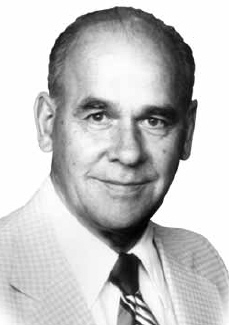
Frederick Page was a Canadian ice hockey administrator and ice hockey referee. He originated from Port Arthur, Ontario, where he played junior ice hockey, refereed locally and later at the Memorial Cup and Allan Cup competitions. He was a league executive in Fort William, then served as president of the Thunder Bay Amateur Hockey Association from 1958 to 1962. He was elected second vice president of the Canadian Amateur Hockey Association (CAHA) in 1962, and rose up the ranks to be its president from 1966 to 1968. Page wanted the CAHA to gain more control over its affairs, and become less dependent on the National Hockey League (NHL). Under his leadership, the NHL ended direct sponsorship of junior hockey teams. He was instrumental in negotiating the revised agreement for the NHL Amateur Draft in 1967, and later served as co-chairman of the resulting joint player development committee.
The Manitoba Hockey Association (MHA) was an early men's senior ice hockey league playing around 1900 in Manitoba, Canada. The league started as an elite amateur league in 1892, became professional in 1905, had a professional and an amateur league in 1908–09 and only an amateur league from 1909 until 1923. Two teams from the league won the Stanley Cup, the Winnipeg Victorias and the Kenora Thistles. Three other teams from the league challenged for the Stanley Cup: Brandon Wheat City, Winnipeg Maple Leafs, and the Winnipeg Rowing Club. Other teams in the league won the Allan Cup: Winnipeg Hockey Club, Winnipeg Falcons, Winnipeg Monarchs and Winnipeg Victorias.
The Wheat City Hockey Club was an early amateur ice hockey club in Brandon, Manitoba. The club fielded senior-level, junior and intermediate teams from 1898. The club fielded teams in the Manitoba & Northwestern Hockey Association, followed by the Manitoba Hockey Association, the Manitoba Professional Hockey League (MPHL) and the early Manitoba Hockey League.
Jimmy Dunn was hired as commissioner of the Manitoba Junior Hockey League (MJHL) in May 1964. The league had been reduced to four teams based in the Greater Winnipeg area after the withdrawal of the Brandon Wheat Kings and the Fort Frances Royals. The MJHL transitioned from a draft of players in the Greater Winnipeg Minor Hockey Association, into a system where each team chose players from a set geographic district. The new "zoning" arrangement was planned to be in effect for three seasons to stimulate more localized interest in junior hockey and aimed to keep teammates together from the minor hockey level to the junior hockey level. Dunn supported the change and noted that the concept had produced forward lines on previous Memorial Cup championship teams from Winnipeg. The Charlie Gardiner Memorial Trophy series was revived as a preseason tournament for the league's teams. Dunn reached an agreement to televise MJHL games on CJAY-TV, and the league experimented with playing games on Sunday evenings instead of afternoons to increase its attendance and avoid competing with televised football games. Dunn requested to the Canadian Amateur Hockey Association (CAHA) that the MJHL waive its bye into the Abbott Cup finals and its playoffs champion meet the Thunder Bay Junior A Hockey League champion in the first round. He felt that the loss of gate receipts from a bye was a financial hardship for the MJHL, and shorten the league's playoffs to accommodate the change approved by the CAHA.
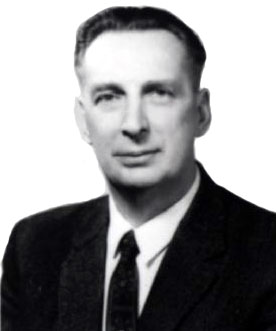
Hanson Taylor Dowell was a Canadian ice hockey administrator and politician. He served as president of the Canadian Amateur Hockey Association from 1945 to 1947, and was the first person from the Maritimes to serve on the national executive. He sought to have the Canadian definition of amateur recognized at the World Championships and the Olympic Games for the benefit of Canada's national team, and negotiated the merger of the International Ice Hockey Association into the Ligue Internationale de Hockey sur Glace. He served as president of the Maritime Amateur Hockey Association from 1936 to 1940, and later as treasurer of the Maritimes and the Nova Scotia Hockey Associations for a combined 30 years.

The Winnipeg Monarchs were a Canadian senior ice hockey team from Winnipeg, Manitoba, that was organized in 1906. The Monarchs won the 1915 Allan Cup as the Canadian Senior Hockey Champions. In 1935 the Monarchs won gold for Canada at the World Ice Hockey Championships.
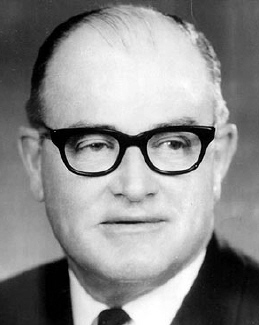
Frank Forest Sargent was a Canadian sports executive in ice hockey and curling. He served as president of the Canadian Amateur Hockey Association (CAHA) from 1942 to 1945, and was president of the Dominion Curling Association (DCA) from 1965 to 1966. He was the first person to be elected to more than two terms as CAHA president, and the first to be president of two national amateur sporting associations in Canada.
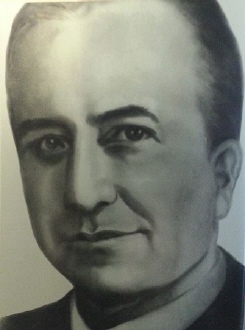
Cecil Charles Duncan was a Canadian ice hockey administrator. He served as president of the Canadian Amateur Hockey Association (CAHA) from 1936 to 1938 and led reforms towards semi-professionalism in ice hockey in Canada. He served as chairman of the CAHA committee which proposed a new definition of amateur to eliminate what it called "shamateurism", in the wake of Canada's struggles in ice hockey at the 1936 Winter Olympics. He negotiated a series of agreements to protect the CAHA's interests, and to develop relationships with all other areas of the world where hockey was played. The agreements allowed the CAHA to become independent of the Amateur Athletic Union of Canada which wanted to keep the old definition of pure amateurism. Duncan's reforms also returned the CAHA to affluence after four years of deficits during the Great Depression and increased player registrations in Canada.
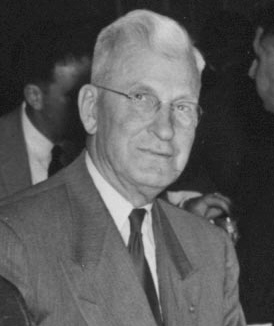
John Welch Hamilton was a Canadian sports executive. He served as president of the Canadian Amateur Hockey Association (CAHA) from 1930 to 1932, president of the Amateur Athletic Union of Canada from 1936 to 1938, and was a member of the Canadian Olympic Committee for 17 years. His leadership of the CAHA and the AAU of C coincided with efforts to maintain amateurism and combat growing professionalism in sport. He appointed a committee to establish better relations between the CAHA and professional leagues, and praised the players and teams for quality hockey and growth of the amateur game in Canada despite the competition. He favoured professionals in one sport playing as amateurs in another, and took charge of the AAU of C at a time when the CAHA, the Canadian Amateur Basketball Association, and the Canadian Amateur Lacrosse Association challenged the definition of amateur, and later broke away from the AAU of C which wanted to hold onto purist ideals of amateurism.

Edward Albert Gilroy was a Canadian ice hockey administrator. He served as president of the Manitoba Amateur Hockey Association (MAHA) from 1927 to 1934, and the Canadian Amateur Hockey Association (CAHA) from 1934 to 1936. In Manitoba, he sought to expand senior ice hockey and establish co-operation between teams and owners of the Winnipeg Amphitheatre on schedules and reducing travel costs. He wanted all players aged 21 and younger to remain in junior ice hockey and began to negotiate with professional teams to refrain from signing them to contracts. His seven years as leader of the MAHA was the longest tenure for a president at the time, during which he oversaw continued growth of the association and improvement of finances.

The Maritime Amateur Hockey Association (MAHA) was a governing body for amateur ice hockey in the Maritimes of Canada. It was a branch member of the Canadian Amateur Hockey Association from 1928 to 1974, with its jurisdiction including the provinces of New Brunswick, Nova Scotia and Prince Edward Island. The MAHA operated leagues for senior ice hockey which competed for the Allan Cup, and leagues for junior ice hockey which competed for the Memorial Cup. The New Brunswick Amateur Hockey Association separated from the MAHA in 1968, and the MAHA ceased to exist after the Nova Scotia Hockey Association and Prince Edward Island Hockey Association were established in 1974.

William Franklin Taylor was a Canadian ice hockey administrator. He was the founding president of both the Canadian Amateur Hockey Association (CAHA) and the Manitoba Amateur Hockey Association in 1914, and also served as president of the Winnipeg Amateur Hockey League. He sought for the Allan Cup to be symbollic of the amateur hockey championship of Canada, and to establish a national authority to oversee competition for the trophy. He allied the CAHA with the Amateur Athletic Union of Canada against professionalism and to promote amateur sport and expand hockey in Canada. He supported a desire by the players to govern their own affairs, to standardize ice hockey rules and ice hockey rink dimensions, and recognition of the authority and judgment of on-ice officials. Taylor assisted with patriotic fundraising to contribute to the World War I effort in Canada, and served the community in Winnipeg as a leading member of the Elks and the Shriners. He sat on the board of governors for The Children's Hospital of Winnipeg and the local Children's Aid Society, and was posthumously inducted into the Manitoba Hockey Hall of Fame in 1992.
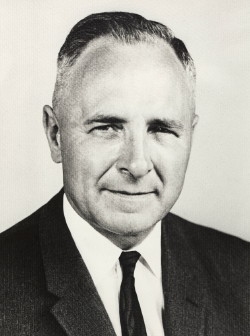
Arthur Thomas Potter was a Canadian ice hockey administrator. He was president of the Canadian Amateur Hockey Association (CAHA) from 1962 to 1964, and oversaw the establishment of a permanent Canada men's national ice hockey team after he decided that sending the reigning Allan Cup champion to international competitions was no longer the answer. He felt that Canada needed discipline to handle Cold War tactics and propaganda at the Ice Hockey World Championships, sought to give its best players to develop as a team, and supported a plan by Father David Bauer to assemble a team of amateur student athletes to complete at the 1964 Winter Olympics.

Frederick Paul Henry Marples was a Canadian sports executive in ice hockey and athletics. He was president of the Winnipeg Monarchs team which won Winnipeg Amateur Hockey League championships in 1914 and 1915, and the Allan Cup as senior ice hockey champions of Canada. His operation of a reserve team to support the Monarchs led to debates on player eligibility for the Allan Cup and calls for a national governing body of hockey. As the secretary-treasurer of the Winnipeg Amateur Hockey League, he helped establish both the Manitoba Amateur Hockey Association (MAHA) and the Canadian Amateur Hockey Association (CAHA) in 1914; then served as secretary-treasurer of the MAHA from 1914 to until 1934, and as secretary of the CAHA from 1926 to 1945. He sought to grow the game in rural regions of Manitoba, promote minor ice hockey as a source of future senior players, to keep players in junior ice hockey until age 21, and was against the exodus of amateur players to professional teams.
